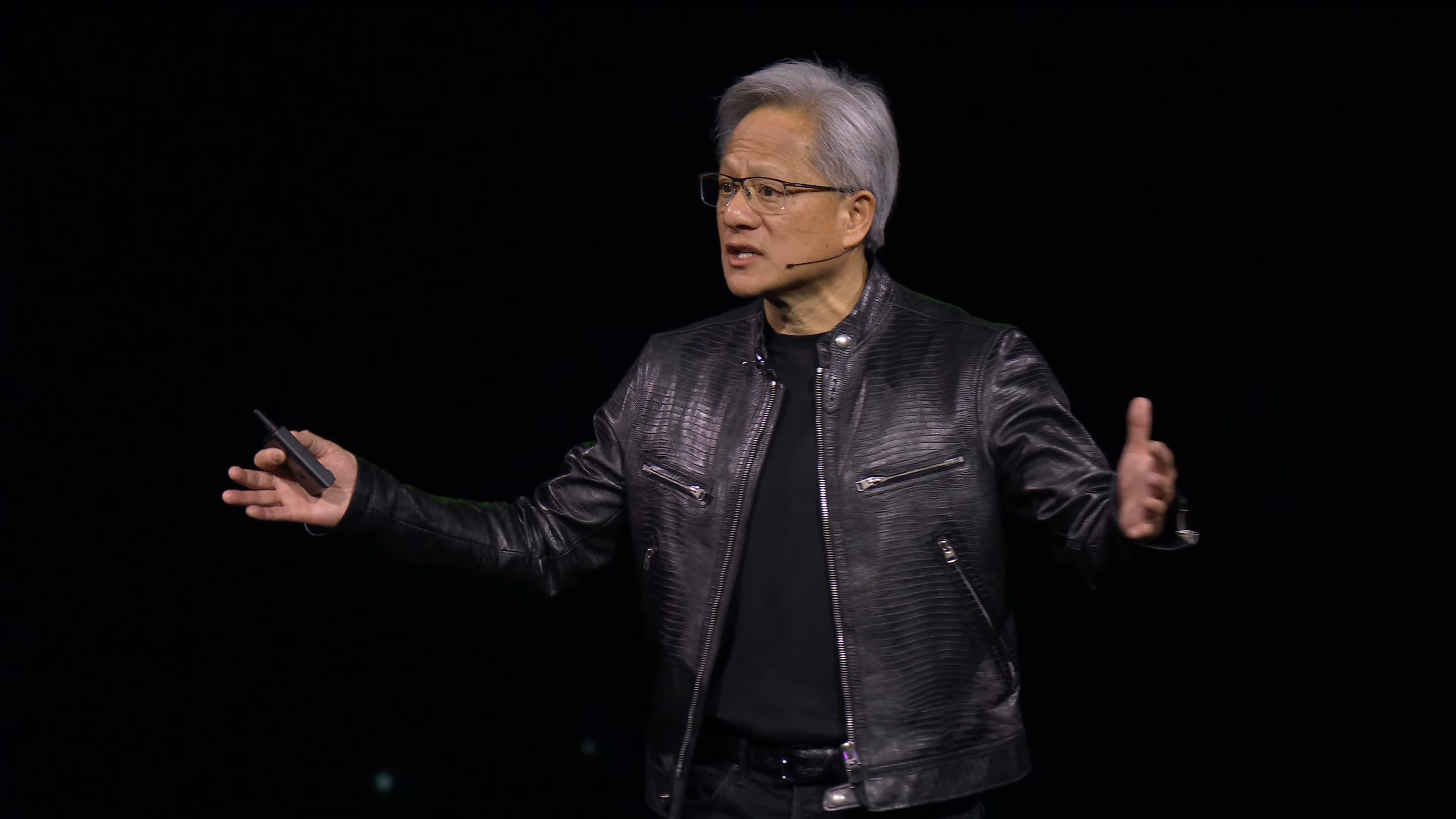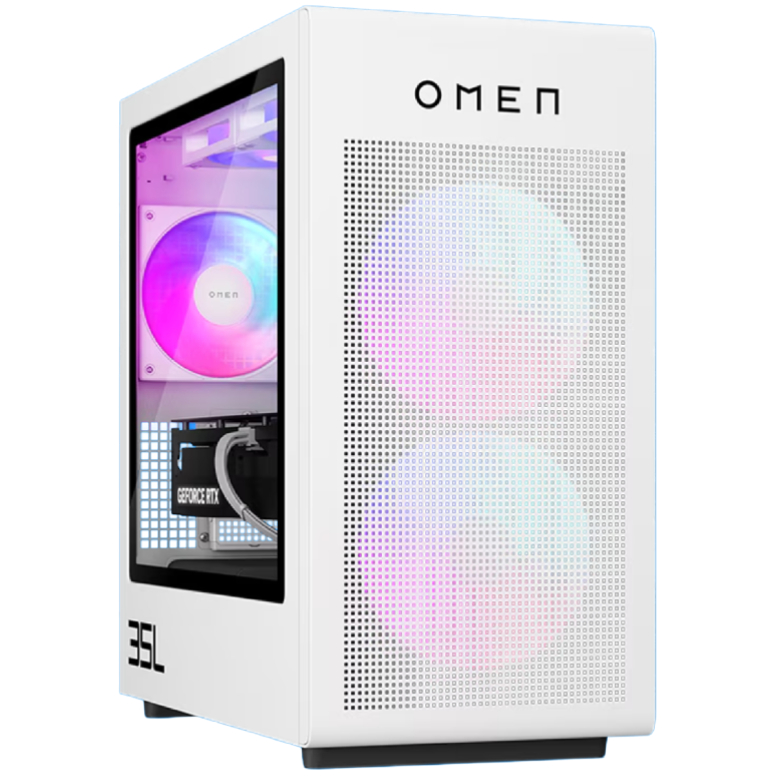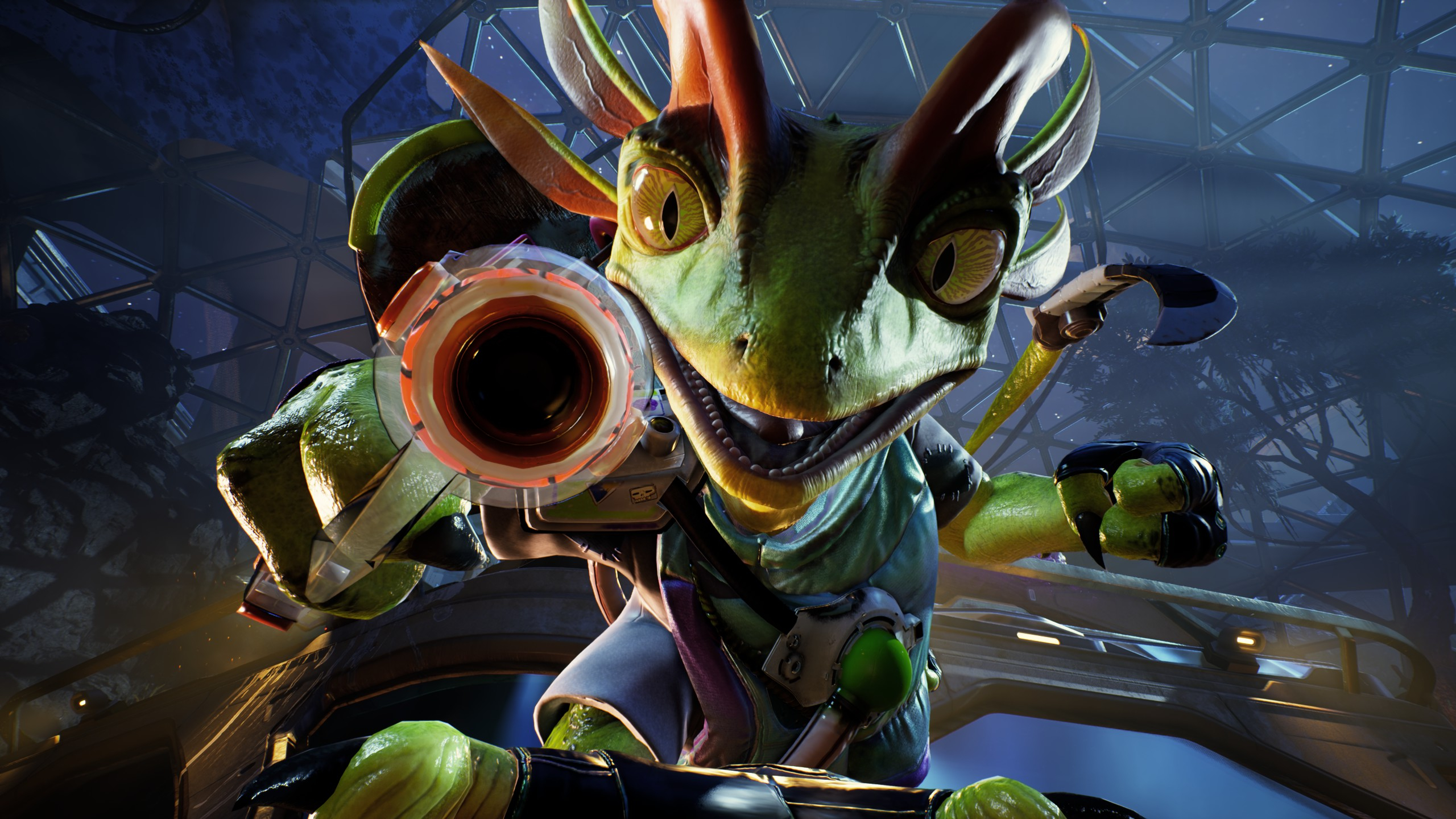Nvidia CEO Jensen Huang says the US needs to 'go compete' with AI chips against China because 'they're nanoseconds behind us'
Playing the field.

Keep up to date with the most important stories and the best deals, as picked by the PC Gamer team.
You are now subscribed
Your newsletter sign-up was successful
Want to add more newsletters?

Every Friday
GamesRadar+
Your weekly update on everything you could ever want to know about the games you already love, games we know you're going to love in the near future, and tales from the communities that surround them.

Every Thursday
GTA 6 O'clock
Our special GTA 6 newsletter, with breaking news, insider info, and rumor analysis from the award-winning GTA 6 O'clock experts.

Every Friday
Knowledge
From the creators of Edge: A weekly videogame industry newsletter with analysis from expert writers, guidance from professionals, and insight into what's on the horizon.

Every Thursday
The Setup
Hardware nerds unite, sign up to our free tech newsletter for a weekly digest of the hottest new tech, the latest gadgets on the test bench, and much more.

Every Wednesday
Switch 2 Spotlight
Sign up to our new Switch 2 newsletter, where we bring you the latest talking points on Nintendo's new console each week, bring you up to date on the news, and recommend what games to play.

Every Saturday
The Watchlist
Subscribe for a weekly digest of the movie and TV news that matters, direct to your inbox. From first-look trailers, interviews, reviews and explainers, we've got you covered.

Once a month
SFX
Get sneak previews, exclusive competitions and details of special events each month!
Nvidia CEO Jensen Huang claims that China is "nanoseconds behind" the US in terms of AI technology and chipmaking. During an interview on the BG2 podcast, a tech and investment focused bi-weekly program, the CEO of Nvidia echoed a sentiment similar to that of comments he made back in May of this year about how his company and the wider American tech industry needs to "go compete" in China.
Huang emphasises, "We’re up against a formidable, innovative, hungry, fast-moving, underregulated [competitor in China]" (via Tom's Hardware). These comments follow a podcast passage where Huang is generally complementary about the current US administration. Huang said, "[President Trump] wants America to win the AI race. This is going to be a very long-term race, and he understands this is a pivotal time. He wants the technology industry to run. He wants everybody in the world to be built on American technology."
But China has been busy, accelerating its own AI infrastructure plans with a reported mandate that its domestic data centres source at least 50% of their chips from similarly domestic manufacturers to avoid a reliance on US-made tech. Huawei, and the company's Ascend 910B chips and CUDA-free systems, are arguably at the forefront of that push.
"People think that they're centrally governed but, remember that the genius of China was distributed economic systems," Huang goes on to elaborate, "And so all of these 33 provinces and all the mayor economy has driven an enormous amount of internal competition, internal economic vibrancy, which of course has some of its side effects. But this is a vibrant entrepreneurial, high tech, modern industry."
These latest comments are spoken amid an incredibly complex geopolitical stage. For one thing, it's a strange state of play on the home field of the US; though the Trump administration appears to be all in on AI with infrastructure projects like Stargate, the latest beat in the tech tariff saga is a plan to hit US companies that don't equally source their chips from the States as well as China with yet another tariff fee.

During the BG2 podcast interview, Huang himself offers further context about Nvidia's place in China, saying the company had previously held a "95% market share" there but was now losing out to home-grown tech competitor Huawei. Though Huang comments in the BG2 podcast that his guidance to investors reassures that there are plenty of opportunities for growth outside of China, the country is still hugely important to Nvidia.
Huang says, "I believe it is in the best interests of China that Nvidia is able to serve that market and compete in that market. [...] It is of course in the fantastic interest of the United States. But those two truths can coexist. It is possible for both to be true and I believe it is both true."
Keep up to date with the most important stories and the best deals, as picked by the PC Gamer team.
Nvidia has 30 years of history with China and its tech industry—but the company's H20 chips have become something of a flashpoint in this relationship. Nvidia announced back in July that it was applying to export its H20 GPUs to China again. These chips were originally designed to comply with the prior Biden administration's AI diffusion rule (which Nvidia's VP of government affairs, Ned Finkle, was not a fan of).
But despite tech firms in China wanting these chips, Nvidia had to pause production of H20 back in August amid security concerns raised by the Chinese government (some choice remarks from President Trump may not have helped). China's internet regulator, the Cyberspace Administration of China, has also apparently banned some of the country's biggest tech companies from picking up Nvidia's RTX Pro 6000D, a product specifically designed with the Chinese market in mind. Is it any wonder then that major Chinese firm Tencent has moved to build its systems upon homegrown silicone?
With such challenging markets on either side of the geopolitical divide, will the good, profitable-AI-times continue to roll for Nvidia? Or is the company's recent $100 billion deal with OpenAI the beginning of the snake eating its own tail? Time can only tell.

1. Best overall:
HP Omen 35L
2. Best budget:
Lenovo Legion Tower 5i
3. Best high-end:
Corsair Vengeance A7500
4. Best compact:
Velocity Micro Raptor ES40
5. Alienware:
Alienware Area-51
6. Best mini PC:
Minisforum AtomMan G7 PT

Jess has been writing about games for over ten years, spending the last seven working on print publications PLAY and Official PlayStation Magazine. When she’s not writing about all things hardware here, she’s getting cosy with a horror classic, ranting about a cult hit to a captive audience, or tinkering with some tabletop nonsense.
You must confirm your public display name before commenting
Please logout and then login again, you will then be prompted to enter your display name.

